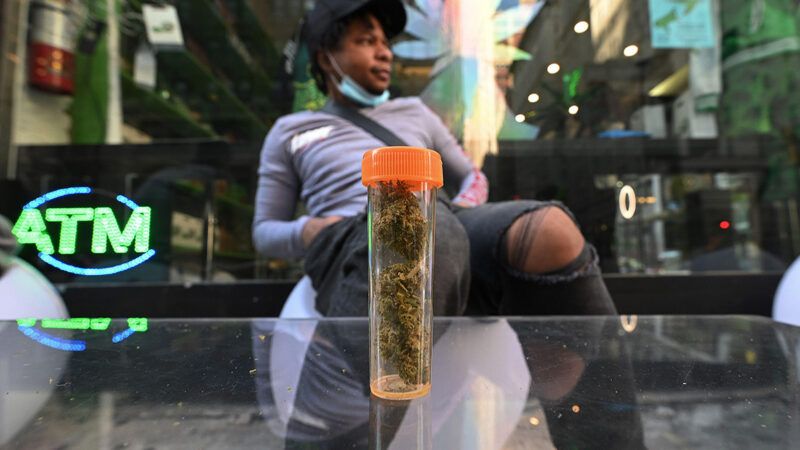The Government Caused New York's Legal Pot 'Disaster'
The state has thousands of unauthorized shops but fewer than 200 licensed marijuana sellers.

As of early May, more than three years after New York legalized recreational marijuana, just 119 licensed dispensaries were serving that market in the entire state. Unauthorized pot shops outnumbered legal outlets by 20 to 1, according to The New York Times, with more than 2,000 operating in New York City alone. The state had less than one licensed pot store per 100,000 residents—in contrast with about six in Massachusetts, 10 in Maine, 11 in Colorado, 19 in Oregon, and 48 in New Mexico.
Legislators and regulators could have avoided this "disaster," as New York Gov. Kathy Hochul recently called it, had they learned from the mistakes of other states that have struggled to displace the black market. Yet New York politicians somehow did not anticipate what would happen after people could legally use marijuana but could not obtain it from legal sources.
Legislators did not allow home cultivation, and they initially did not allow medical dispensaries to serve recreational consumers. New York created a complicated, costly, and sluggish licensing process that prioritized "equity" and "diversity" above efficiency. The state imposed burdensome fees, taxes, and regulations that made it difficult for legal dispensaries to compete with the unlicensed stores that sprang up to fill the supply gap.
New York did not let medical dispensaries enter the market until last December. Even then, it charged companies $20 million for the privilege of operating up to three outlets.
New businesses faced fees up to $300,000, and regulators gave priority to retail applicants who were deemed disadvantaged, including people with marijuana conviction records and their relatives. Those preferences provoked lawsuits that further delayed the licensing process, and they blocked applicants who might have been better equipped to run a successful business.
Despite these problems, Hochul remains proud of New York's "social equity" program. But she has ordered a bureaucratic overhaul to speed up retail license approvals and has voiced support for cutting the state's heavy marijuana taxes, which currently include a three-tiered wholesale tax based on THC content as well as a 13 percent retail tax.
Legislators should keep in mind that licensed shops are competing with a black market where the tax rate is zero. New York also should reexamine the onerous regulations that make legal weed more expensive and less accessible.
Although Hochul has promised to "shut down illicit operators," any such crackdown is apt to inflict the sort of harm that legalization was supposed to ameliorate, punishing entrepreneurs for filling the yawning gap left by the state's misguided policies and administrative incompetence. Nor is enforcement likely to succeed, given the abysmal track record of the war on weed—a crusade that legislators supposedly ended three years ago.
This article originally appeared in print under the headline "New York's Predictable Legal Pot 'Disaster'."


Show Comments (39)